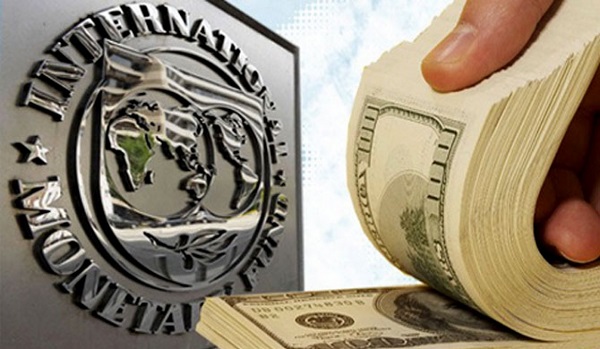IMF to extend Sri Lankan loan facility
March 2, 2019 | Expert Insights

International Monetary Fund has agreed to extend Sri Lanka’s $1.5 billion loan program by an additional year.
Background
Sri Lanka’s debt soared as it was developing its infrastructure to the point of near bankruptcy which required a bailout from the International Monetary Fund (IMF). The IMF had agreed to provide a $1.5 billion bailout loan in April 2016 after Sri Lanka provided a set of criteria intended to improve its economy. By the fourth quarter of 2016, the debt was estimated to be $64.9 billion. The additional debt had been incurred in the past by state-owned organizations and this was said to be at least $9.5 billion. Since early 2015, domestic debt increased by 12 per cent and external debt by 25 per cent. In late 2016 the World Bank provided US$100 million in financing and the Japan International Cooperation Agency provided a US$100M loan.
As part of the debt management program, the Sri Lankan government carried out several reforms which including the implementation of a new Inland Revenue Act as well as an automatic fuel pricing formula. Tax reforms also increased VAT rates and narrowed exemptions and the third review by the IMF noted that performance was on track.
Analysis
The International Monetary Fund (IMF) said it has reached an agreement with Sri Lanka to extend a $1.5 billion loan facility for an extra year, a move some analysts say could allow the government to boost spending ahead of key elections.
The IMF also concluded its fifth review to ensure the terms of its lending facility are being met, allowing it to disburse the sixth tranche of the loan. The global lender has disbursed over $1 billion out of a $1.5 billion three-year extended fund facility (EFF) loan it agreed in 2016. The aim was to avert a financial crisis and support the economic reform agenda of the government then in power. The loan program, known as the Extended Fund Facility (EFF), now stretches to four years, from the originally agreed three in mid-2016.
The IMF in November said it had delayed the program until it had more clarity on the political situation after President Maithripala Sirisena abruptly sacked his prime minister Ranil Wickremesinghe in a move that was later ruled unconstitutional. Wickremesinghe was later reinstated.
A staff team from the International Monetary Fund (IMF) led by Manuela Goretti in a statement said the team welcomes the authorities’ efforts to bring their economic reform program back on track following the political turmoil of late 2018.
The team noted that revenue -based fiscal consolidation and SOE reforms are needed to put Sri Lanka’s high public debt on a downward path while providing space for critical social and development goals. The global lender also said the island nation’s economic growth is expected to improve to about 3.5 per cent this year, speeding from 3 per cent last year and urged the central bank to be ready to tighten monetary policy if inflationary pressures re-emerge.
“Renewed efforts to improve transparency, accountability, and cost-efficiency of large state-owned enterprises are needed to help safeguard fiscal sustainability and catch up with delays in reform implementation. The authorities should move forward with plans to bring SriLankan Airlines on a sound commercial and financial footing and complete energy pricing reforms to address rising fiscal risks"
The loan is crucial for Sri Lanka, which plans to sell up to $3 billion of bonds as early as next week and needs the IMF program to continue to ensure more attractive borrowing terms. Sri Lanka is set to hold presidential elections later this year, followed by parliamentary polls in 2020. Sri Lanka is struggling to repay its foreign loans, with a record $5.9 billion due this year, including $2.6 billion in the first three months. It used its reserves to repay a $1 billion sovereign bond loan in January.
Assessment
Our assessment is with the help of strong policy initiatives, complemented by the measures taken under the extended fund facility, macroeconomic stability is likely to be restored in Sri Lanka. It can be noted that this will also help to strengthen investor confidence and the extended time will provide added flexibility for the government to face elections.








Comments